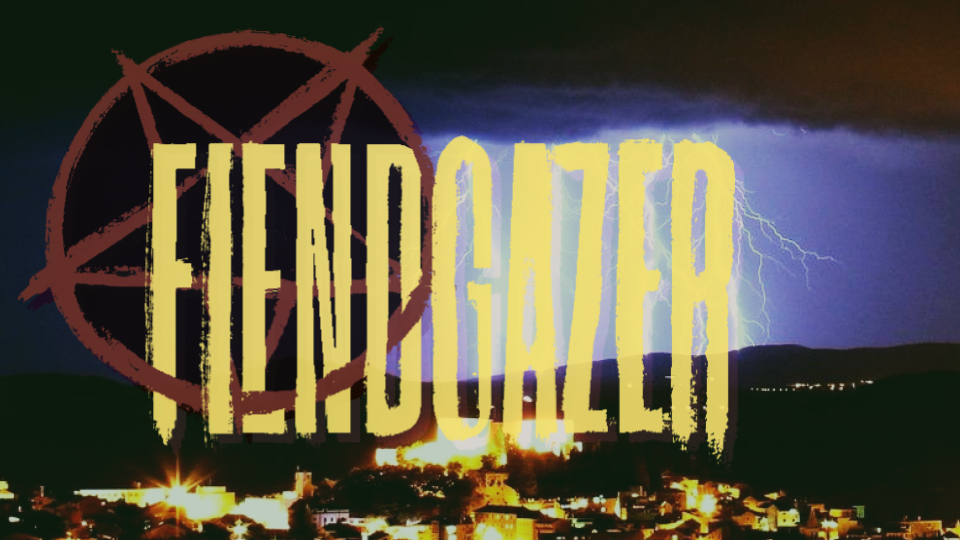The Evil You Invite: Fiendgazer and the Temptation Engine
Fiendgazer is a game about what small towns believe, and what might happen when that belief begins to answer back. The themes Fiendgazer leans into are biblical evil, temptation, slow decay, divine absence or fury, and also rituals, beliefs, horrific myths and fantasies. These tropes are deeply ingrained in cultural storytelling, especially in American gothic and folk horror. Yet they’re surprisingly rare in games.

Fiendgazer Aims to Fill a Void
Slow, ambient dread is hard to gamify. Games often rely on action loops (fighting, hiding, solving) which disrupt the kind of pressure that biblical or mythic horror thrives on: powerlessness, witnessing, temptation, and moral fracture. Temptation isn’t interactive enough in most game models. But in Fiendgazer, it is: the Gaze, the Truths, and the Gauges are all about how far you’ll go and what you’ll ignore.
Fiendgazer finds itself in a surprisingly rare thematic territory, and that’s a void waiting to be filled. This game is doing something many horror games talk about but rarely commit to. It scours unclean knowledge, dark charms that feel euphoric and wrong at the same time. It leads to communal madness, not just individual survival, because it’s about the town that thinks it’s celebrating, while being oblivious to its sacrifice.
American small-town horror often gets reduced to clichés. Fiendgazer actively delves into those clichés to discover something much more potent and spiritually unsettling.
Most horror stories set in American small towns lean on familiar tropes: the creepy locals, the outsider who knows too much, the buried secret no one wants to uncover, the slasher in the cornfield, or the demon in the well. And they usually resolve in violence, escape, or exposure: someone runs, someone fights, the evil is revealed and burned down. But real small-town dread is not only about what’s hidden under the town: it’s also about what the town already believes.
The Cliché Is Not to Be Discarded. It’s to Become Intrinsic
The overplayed archetypes are all there in Fiendgazer, too: The “creepy sheriff,” the “hollow-eyed farmer,” the “innocent preacher” who’s actually a cultist. They’re just masks. You’ve seen them. You know the moves. But now … They’re you. That’s the thing. You are part of it.
Fiendgazer drops the outsider POV. So many stories come from the lens of someone entering the town. They observe, they’re endangered, they flee or survive. But what about the people who never left? What if they remember differently?
There’s also nothing wrong with obvious evil. Slashers, haunted houses, cults with big knives, all good. But none of it asks the player to doubt themselves. It’s all too clean. You’re supposed to want to win. They give you something obvious to run from, or to destroy. In Fiendgazer, the fear is knowing you’re part of it, and maybe you wanted it all along. You don’t “win” often in Fiendgazer, but if you do, it’s almost always through sacrifice.
So Fiendgazer does all that. But it also looks at the horror in the celebration. The ritual. The normal. That’s where evil sits best: not where people scream, but where they smile. You’re not a stranger. You’re from here. You know these people. You were part of the choir, the track team, the graveyard shift. And now you feel it pulling loose. Beside the question “Who summoned the Fiend?” there are more: Why does it want to be here? What’s the unholy to fix what this place won’t talk about?
American small towns already run on ritual: parades, fairs, prayer circles, fireworks, founding myths. Fiendgazer asks: What happens when those rituals start listening back? What if evil isn’t invading? What if it’s been invited, in the name of tradition, community, and pride?
Get FIENDGAZER
FIENDGAZER
Small-town horror RPG about chosen ones, rituals, and the Beyond.
| Status | Released |
| Category | Physical game |
| Author | tremor.pings |
| Genre | Role Playing |
| Tags | Creepy, Horror, Indie, Narrative, No AI, Tabletop, Tabletop role-playing game |

Leave a comment
Log in with itch.io to leave a comment.